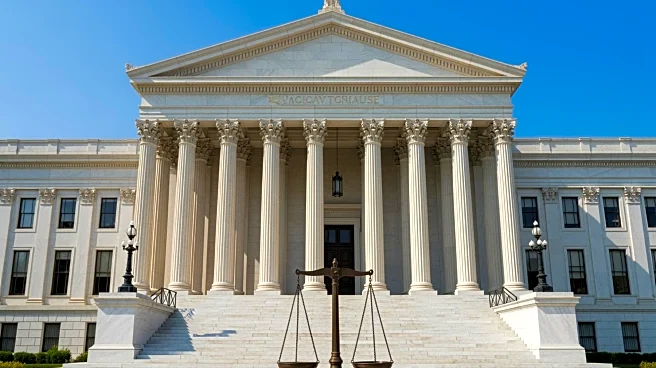What's Happening?
President Trump has requested the Supreme Court to block a lower court ruling that mandates the administration to fully fund food stamp benefits for November. This emergency appeal follows a decision by
US District Judge John McConnell in Rhode Island, which requires the administration to cover the full benefits for millions of Americans. The administration argues that the funding lapse is a crisis caused by congressional failure, and only congressional action can resolve it. The US Solicitor General, D. John Sauer, described the district court's ruling as untenable. The legal battle over SNAP benefits has become a significant issue during the prolonged government shutdown, affecting millions who rely on these food benefits.
Why It's Important?
The outcome of this legal battle is crucial for millions of Americans who depend on SNAP benefits for their food security. The administration's appeal to the Supreme Court highlights the tension between executive actions and judicial rulings, especially in the context of government funding and social welfare programs. If the Supreme Court sides with the administration, it could lead to reduced benefits for SNAP recipients, impacting their ability to afford food. Conversely, upholding the lower court's decision would ensure full benefits, providing necessary support to low-income families during the economic challenges posed by the government shutdown.
What's Next?
The Supreme Court's decision on the emergency appeal will determine the immediate future of SNAP benefits funding. If the court grants the administration's request, it may lead to further legal challenges and public outcry from affected individuals and advocacy groups. Congressional action may be required to address the funding issues and ensure the continuation of full benefits. Stakeholders, including state governments and social service organizations, are likely to respond based on the court's ruling, potentially influencing public policy and legislative priorities.









